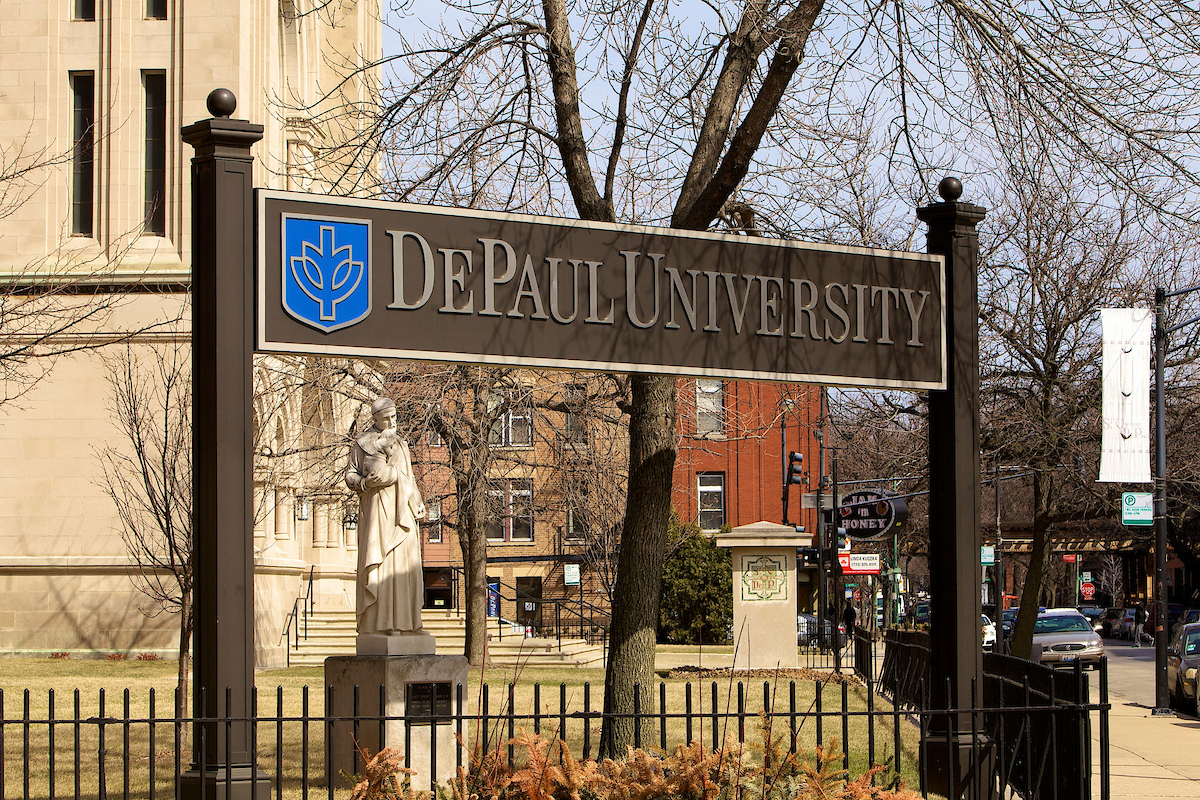 (DePaul University/Jeff Carrion)
(DePaul University/Jeff Carrion)
DePaul's Board of Trustees has approved a $565 million SRAC-recommended budget for fiscal year 2018-19. The new budget keeps mission sustainability at the forefront and prioritizes funding to support academic innovation and strategic initiatives that may emerge from the university's ongoing strategic planning process.
"The university is placing its future front and center," says DePaul President A. Gabriel Esteban, Ph.D. "Under the approved budget, DePaul will continue to invest in our employees, increase access to high-quality academics by strengthening institutional financial aid and invest in our academic enterprise."
The approved budget includes a merit pool of 2.7 percent for full- and part-time faculty and staff (increased from 2.5 percent in previous years). DePaul also will increase the match of employees' 403(b) contributions from 9.5 to 10 percent. At the same time, the university will maintain the current comprehensive employee benefits package.
The university also will raise the minimum wage to $12 per hour, as required by law; this wage increase primarily benefits students.
Institutional financial aid will increase nearly 9 percent over the previous year's budget to $222 million. In keeping with past years, SRAC recommended moderate tuition pricing increases for new undergraduates, with lower increases for continuing and graduate students. The proposed budget ensures protection for Monetary Award Program funding, in the event the state fails to fund the grants for low-income students.
DePaul's total student enrollment hit an all-time high in 2011 and has been gradually declining each year since then. The decreasing enrollments have had a very real effect on the university's overall financials. For several years, the university has trimmed expenses to meet these reductions in revenue.
"Rather than across-the-board cuts, the FY19 budget is designed to subsidize strategic investments in academic programs necessary for DePaul's long-term success," says Jeff Bethke, executive vice president. "The approved budget plan calls for an allocation of resources toward institutional priorities achieved through cost-saving measures, strategic reorganizations and potential reductions that will result from a comprehensive review of organizational processes across campuses."
To better position the university for the future, SRAC recommended major cost-saving measures and strategic reductions in the FY19 budget, primarily in administrative and support expenses. These structural changes will place the university in a better long-term position to invest in strategic growth and reduce the need to continue making incremental reductions each year.
These cost-saving measures include the following:
- Surcharge for tuition paid by credit and debit cards, which will be consistent with payment policies at most other universities.
- Reduction of president's discretionary and a limited number of cost center budgets.
- Shift to a centralized technology purchasing model to reduce printer and computer acquisition and maintenance costs.
- The early adoption of a lease-related accounting standard to reduce non-cash expenses.
"The most far-reaching changes relate to the centralization of key financial, administrative and technological services," Bethke notes. "We are looking at ways to expand centralized services in these areas to increase process efficiency, broaden service levels, reduce financial and compliance risks and reduce costs. Any staffing reductions associated with these changes will be planned thoughtfully and in consultation with department leaders." He adds further that, "Such restructuring changes will go into effect before July 1."
"Longer term, for FY20 and beyond, we'll also be looking more closely at strategic changes within academic programs," says Provost Marten denBoer. "We will consider expansions, realignments, consolidations and discontinuations consistent with long-term strategic direction identified within the strategic plan and with the mission, academic purpose and financial necessities of the institution. This work will be getting underway soon."
Budget recommendations were approved by SRAC by an 8-1 vote. Voting members of SRAC were:
- Jeff Bethke, executive vice president and SRAC chair
- Marten denBoer, provost
- Sherri Sidler, controller
- David Miller, dean, College of Computing and Digital Media
- Salma Ghanem, dean, College of Communication
- Bamshad Mobasher, Faculty Council president
- Michaela Winchatz, Faculty Council representative
- Charles Snelling, Staff Council president
- Michael Lynch, Student Government Association president